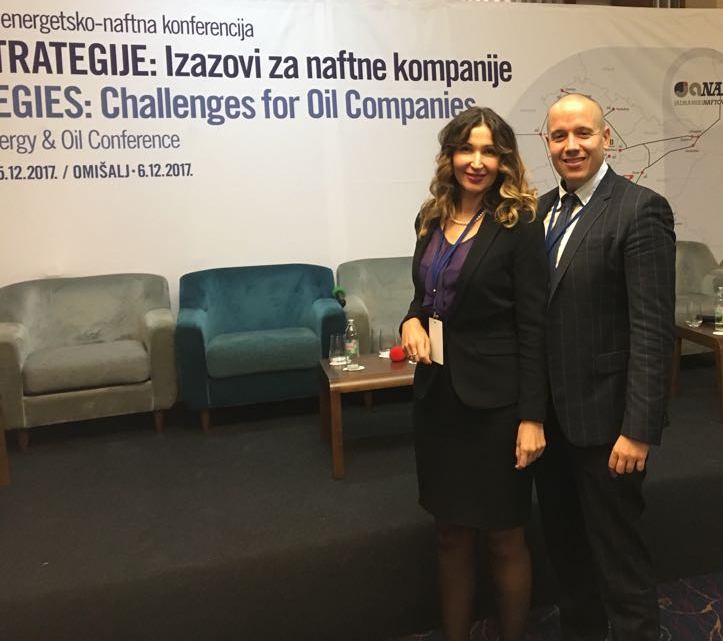SAŠA ŽIKOVIĆ

- Vice Dean for Science and International Strategic Partnerships
- Head of the MBA Programme in Energy Economics
- Initiator of the Carbon Footprint Project at EFRI
- Guest lecturer at eminent world universities (Germany, France, Russia…)
- Head of the Horizon 2020 FinTech Project
You have been the Vice Dean for Science and International Strategic Partnerships for quite some time i.e. since 2013, so could you please tell us what science is for you and maybe, why is it important to build / maintain a scientific milieu/ community within a society?
Science is not just a set of facts and findings as often perceived. I believe that the way we think and look at reality is sometimes even more important than the data itself. Science should be based on reason, logic, criticism (especially self-criticism) and doubt and should be driven by objective, free, and independent thinking
Science aims to generate new knowledge on different phenomena in our environment; it aims to explain these phenomena using scientific methods. Science is crucial in the development of a modern society; it is a pillar in its progress and prosperity.
Nowadays, we are surrounded by a huge amount of information and attitudes; almost everyone wants to present their views as absolutely accurate and true so the importance of critical thinking and reflection is even more pronounced today than ever before.
The scientific way of thinking and approach to the phenomena around us is crucial here as it helps us to distinguish truth from spins, half-truths and lies. The only path to progress is through critical and self-critical reflection because spins and untruths always have a short lifespan. Today, all kinds of information is easily accessible and available to us at every step which makes it much more difficult to distinguish what is true and what is not, the relevant from irrelevant, the current from outdated, and that is why a scientific approach is crucial.
Together with prof. dr. sc. Nela Vlahinić Lenz, you head the MBA Study in Energy Economics conducted in cooperation with Energy Institute Hrvoje Požar (EIHP) from Zagreb. How did this collaboration come about?
Well, 10 years ago a group of us got together including prof. Vlahinić Lenz and myself, Mr. Goran Granić, the then director of EIHP, Mr. Goran Majstrović, prof. Igor Dekanić from the Faculty of Mining, Geology and Petroleum Engineering in Zagreb and prof. Srđan Žutobradić from the Croatian Energy Regulatory Agency(HERA) and conceived the idea of a unique interdisciplinary and international postgraduate MBA study that would combine international management practices and the latest scientific achievements in the energy sector.
Our determination and knowledge, and a certain amount of lucky circumstances allowed us to design an MBA study outside the "classic" rules. We had complete freedom to create a study program from scratch i.e. without any historical relics; one that the energy industry, the regulators and the academic community expected saw as an ideal MBA program in Energy Economics. This complete freedom in the design and implementation of the program is definitely one of the key factors behind the huge success of the MBA Study in Energy Economics
Talking about candidate profiles, who in your opinion pursues postgraduate specialist studies and who postgraduate doctoral studies?
The postgraduate specialist studies, today quite often referred to as MBA programs, in accordance with the Anglo-Saxon practice, are mostly enrolled by middle and senior management coming from companies and institutions oriented towards modern dynamic business activities and who seek additional education and specialization in areas of their interest.
On the other hand, postgraduate doctoral studies in Croatia are aimed more at individuals pursuing careers within the academic community than those involved in business practice. However, during the last ten years we have been witnessing significant changes in this area as more and more business people holding highest management positions are opting for a doctorate, a trend spreading to Croatia from western countries. These individuals have opted to develop their careers even further and have come to a point when they want to contribute the knowledge and experience they gained in practice to the society by pursuing a doctorate any by contributing to science. If we put aside the, let’s say, prestige a doctoral degree gives its holder, what it does is that it truly enables a person to think independently and critically, whether it is in his/her work or life in general.
What are the quality indicators of a postgraduate study? How can a student be sure he or she has made the right decision? In addition to tradition, reputation and the status of the university and/or its constituent offering the postgraduate program, international accreditations are nowadays becoming a key indicator of quality. A relevant international accreditation for doctoral studies in economics and business economics is the European Doctoral Programmes Association in Management and Business Administration (EDAMBA). EFRI is one of the two Croatian faculties holding membership in EDAMBA and one of the four faculties holding membership in the Central, East and South-East European PhD Network (CESEEENet). EFMD and AACSB accreditation are also an indicator of quality in education and research at economic faculties.
The long-term work and dedication of all EFRI employees in innovating the structure and enhancing their quality of study programs have been recognized by EFMD - an leading international accreditation institution, which has awarded EFRI with their EPAS accreditation, currently held by 115 study programs at higher education institutions in management, economics and business economics in the world. Obtaining the prestigious EPAS accreditation places the Faculty of Economics and Business in Rijeka in the top 10% of the world's best faculties of economics and business schools.











